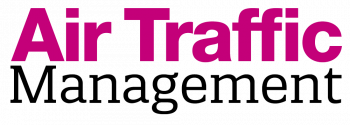These two reports look at the topic of sustainability which remains a key challenge for our industry looking ahead for the next years to come. Although many ANSPs had the opportunity to progress their efforts during the slowdown of traffic during the pandemic, we now have the conflict in Ukraine negatively impacting some of this progress. With the need for longer routes, there are some regions who simply don’t have the ability to make the ‘climate-first’ decisions they were able to do in the past two years. Let’s take a look at the findings of these two reports in short.
Aviation Outlook 2050
EUROCONTROL’s Director General Eamonn Brennan said, “We expect the number of flights to grow by 44% between now and 2050, taking us up to 16 million a year – compared to 11 million in 2019. Our ground-breaking report shows that we can achieve net-zero by 2050 with a series of tangible measures requiring coordinated action by aircraft manufacturers, airlines, airports, fuel companies, ANSPs and, crucially, governments and regulators. Key will be the wide availability and uptake of Sustainable Aviation Fuels (SAF) as they will cover 41% of emissions in our base scenario. The implementation of the Single European Sky is really important – this can make a change in the near-term by 2030 in the region of 8%. Market Based Measures (MBM) will continue to play a very significant role in helping to achieve the net-zero objective, contributing 32%. Revolutionary technological changes, such as hydrogen aircraft will be in place but not at scale for large/very large transport aircraft; they are very important, but it will take longer for their impact to kick in".
Objective Skygreen Report
The Objective Skygreen Report takes the traffic assumptions in the abovementioned report to the next level by considering the topics that need to be addressed in order to achieve net-zero by 2050.
The report looks at the trade-offs between the need to improve and the costs to the industry to do so. These are not small expenditures but are very necessary in order to protect our environment. Industry-driven measures can reduce the cost of decarbonisation to €32.9 billion. These measures include ATM optimisation such as the Single European Sky, updating and renewing of airline fleets and increased adoption of sustainable aviation fuel (SAF). Without these measures, the projected cost of achieving the stated decarbonisation goals increases to €45.7 billion.
Henrik Hololei, Director-General for Mobility and Transport at the European Commission said: “EUROCONTROL’s data shows that if we want to meet the EU’s climate objectives we must go beyond the market-based measures. More action is needed to accelerate and boost the uptake of sustainable aviation fuels, develop further aircraft engines and designs, as well as manage our airspace more efficiently. I am pleased to say that we are delivering on all these elements!“
Learn more in the detailed reports.
